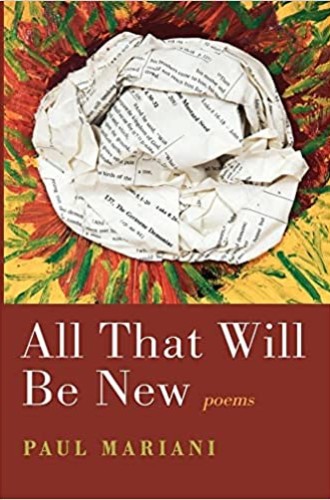Paul Mariani seeks wisdom among the ghosts
The poet, now in his eighties, asks profound questions in a dazzling array of poems.
A distinguished man of letters, Paul Mariani gives us his ninth book of poems, which is perhaps his most compelling and most profound. One of his earlier volumes was entitled Epitaphs for the Journey, and now that journey is nearing its end as Mariani “raises unanswered questions you do not dare to ask” about how we “get to the other side . . . we are destined for.” In his early 80s, he acknowledges, “the sands in my own hourglass are nearly gone.”
The quintessential narrator, Mariani has many stories to tell of his long, fruitful life. Many of the “unanswered questions” he asks are found in this dazzling array of poems—elegiac, ekphrastic, panegyric, pastoral, lyrical, meditative—written in iambic pentameter, free verse, and even Dante’s terza rima. Just as powerfully diverse are the topics Mariani explores, from his ars poetica—painting—to nature in all its manifestations, from heroes like Harriet Tubman and Malcolm X to a catastrophe like COVID.
Not surprisingly, one of the first places Mariani raises questions is in his stunning handful of ekphrastic poems, where he helps readers see inside a painting (and often its artist’s life) but also shows how the painting reads us. Of Picasso’s Guernica, Mariani asks, “Pilgrim, what shall we make of all this.” In Georges de La Tour’s Joseph the Carpenter, Mariani shows how the mortal and divine coexist in love. “Out of the darkness behind the man who turns the augur into wood,” symbolizing a tau cross, we see the boy Jesus holding a candle that seems to pass “radiantly . . . through [his] outstretched hand.” This light radiates Jesus’ face as he helps Joseph, the protector and nurturer, a model of earthly obedience.





